I alreayd saw many questions about this but it the proposed solutions didn't work for me:
In my servlet i do this:
protected void doGet(HttpServletRequest request,
HttpServletResponse response) throws ServletException, IOException {
request.setAttribute("title", "Level0and1ForUser");
request.getRequestDispatcher("./testPages/resultSetFormatter.jsp")
.forward(request, response);
}
}
And in the jsp page:
<title>
<%= request.getParameter("title") %>
</title>
the result is null as you see:
